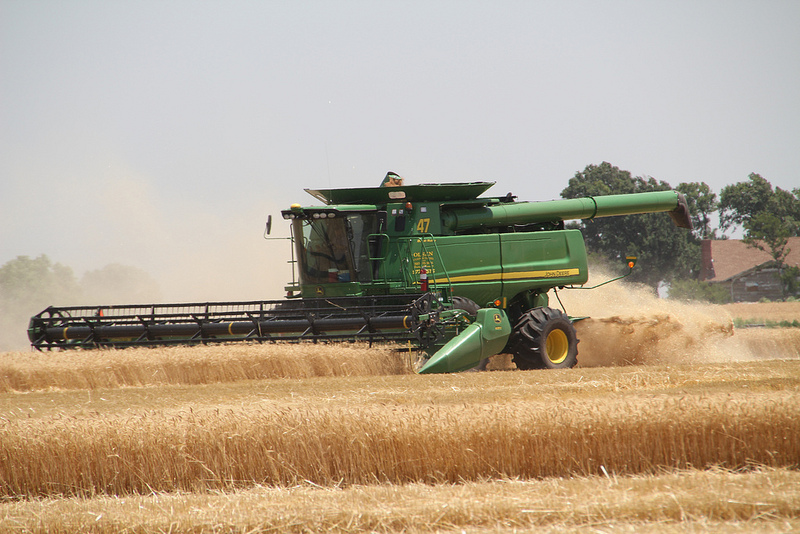
Agricultural News
K-State Study Shows Wheat Breeding Programs Increased Yields by 26 Percent over 26-Year Period
Wed, 04 Sep 2013 16:30:06 CDT

Any producer will tell you, growing a healthy, high-yielding wheat crop takes skill and hard work. Quality drought-tolerant varieties that are resistant to pests and disease are important. And cooperation from Mother Nature in terms of temperature and precipitation doesn't hurt, either.
To quantify the impact of genetic improvement in wheat, disease and climate change over a 26-year period, a team of researchers at Kansas State University examined wheat variety yield data from Kansas performance tests, along with location-specific weather and disease data.
Their results showed that from 1985 through 2011, wheat breeding programs boosted average wheat yields by 13 bushels per acre, or 0.51 bushel each year, for a total increase of 26 percent.
Simulations also found that a 1 degree Celsius increase (1.8 degrees Fahrenheit) in projected mean temperature was found to decrease wheat yields by 10.64 bushels per acre or nearly 21 percent.
"Kansas wheat producers are challenged by weather, pests and disease," said Andrew Barkley professor of agricultural economics and lead researcher of a multi-disciplinary team that included agronomists and plant pathologists. "Fortunately, the Kansas wheat breeding program produces new varieties of wheat that increase yields over time.
"Given weather trends in recent years, climate change is expected to increase temperatures, and this is likely to lower wheat yields in Kansas," Barkley said. "Diseases such as fungi and viruses can attack wheat and lower yields. This research quantifies the impact of weather, diseases and new wheat varieties on yields. So far, genetic improvement has allowed wheat yields to increase significantly over time, but there are challenges ahead to keep up with potential increases in temperature."
The study, funded by the Kansas Agricultural Experiment Station, is the first to quantify all of these impacts (climate change, disease and genetic improvement) using a unique data set, and state-of-the-art statistical methods, Barkley said. The results update and expand previous research to identify and quantify the impact of the Kansas wheat breeding program.
From Tribune in the western part of the state to Ottawa in the east, and Parsons in the south to Belleville in the north, the data came from 11 locations across the state. All yield data are for dryland (non-irrigated) hard red winter wheat, including 245 varieties.
Daily temperature was collected at the specific location of each variety trial, resulting in a location-specific match between variety yield and weather data. That made the study's approach unique in this branch of climate change literature, which typically relies on weather estimates over broad geographical areas.
"We don't know what the future holds," Barkley said. "The research does not predict climate change, or forecast future weather conditions. Instead, it shows the predicted change in Kansas wheat yields if we were to experience a 1 degree (C) increase (1.8 degrees F) in temperature. If the average temperature does increase, this research helps us to understand the potential impact on wheat production."
WebReadyTM Powered by WireReady® NSI
Top Agricultural News
More Headlines...



















